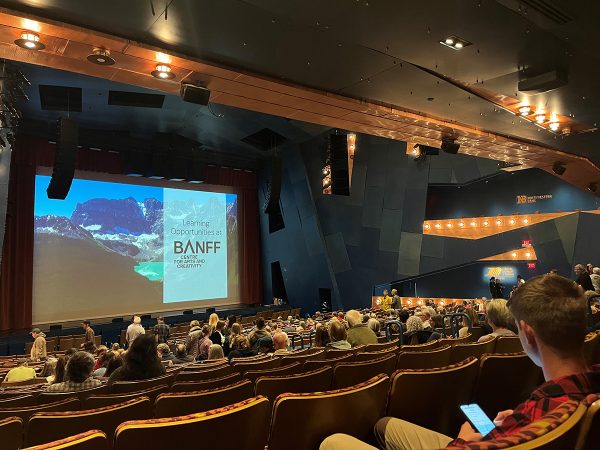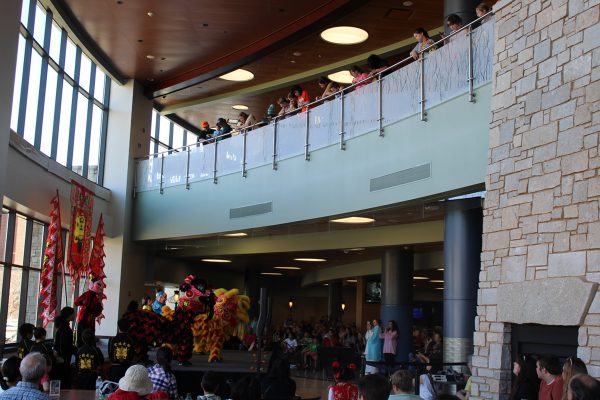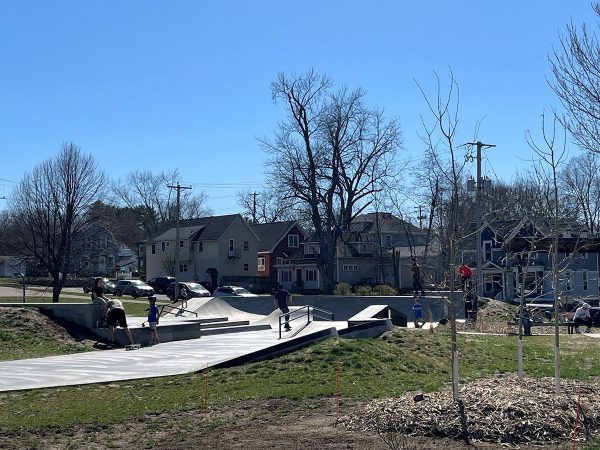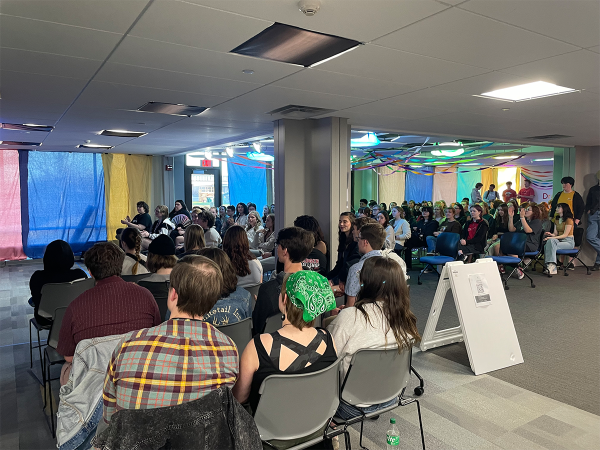Making primitive techniques relevant
Primeval fire, rope-making and debris shelters prove to still be relevant as students were put to the test in Putnam Park over the weekend.
Last Saturday, the Environmental Adventure Center (EAC) at UW-Eau Claire held a Wilderness Survival Workshop for students, faculty and community members of Eau Claire. The workshop hosted approximately 20 people who were interested in learning, if worse came to worse, how to survive alone in the woods.
The event lasted from 9 a.m. to 4 p.m. and comprised of groups of students learning various survival techniques while actually out on the trails in Putnam Park for the majority of the day.
Amy Schmidt, owner of Blue Hills Tipi Retreats, a company focused on educating the public on what nature has to offer, was the instructor of the workshop.
She taught participants about the four basic concepts of need, which are obtaining shelter, water, food, and fire, and how to apply these concepts to real-life situations if the need ever arose.
Schmidt said the basics of the class included how to obtain and filter water, create a fire using two different techniques, make an emergency debris shelter and even to create rope using plants, as well as touching on distinguishing edible plants from poisonous ones.
“The students really enjoyed learning about it, and there was great weather for simulating possible circumstances,” she said, referring to the wind and rain that came on Saturday afternoon.
While not optimal weather for being outside, it actually worked out in their favor because it improved the need to find shelter.
Though this was her first time teaching a class on campus, Schmidt said she would love to come back and teach it again, or something similar, if it were ever offered to students.
Breanna Rheinschmidt, a freshman going into environmental science and biology, attended the workshop and had mostly positive things to say about it.
“I feel that knowing what to do in a situation, let’s say if I did get lost in the woods, and how I could keep myself and others alive, would be good to know,” she said.
She added that the class was very valuable and covered many topics in detail, especially for having only a day to learn everything. The only thing she said she wished she learned more about would have been the edible plants.
Dan Langlois, Assistant Director of Recreation & Sport Facilities at the EAC, was thinking along the same lines after seeing the level of interest in the event.
“The turnout was a real positive sight, and leads me to believe students are looking for this sort of thing,” Langlois said.
He also said that this class was unique in that it offered hands-on experience in building fires, shelters and obtaining and filtering water, something that is not commonplace for students to learn anymore.
They are considering doing another workshop, he said, that would focus on edible plants and other foods found in the wilderness. They are hoping to offer a related workshop as early as next semester.









